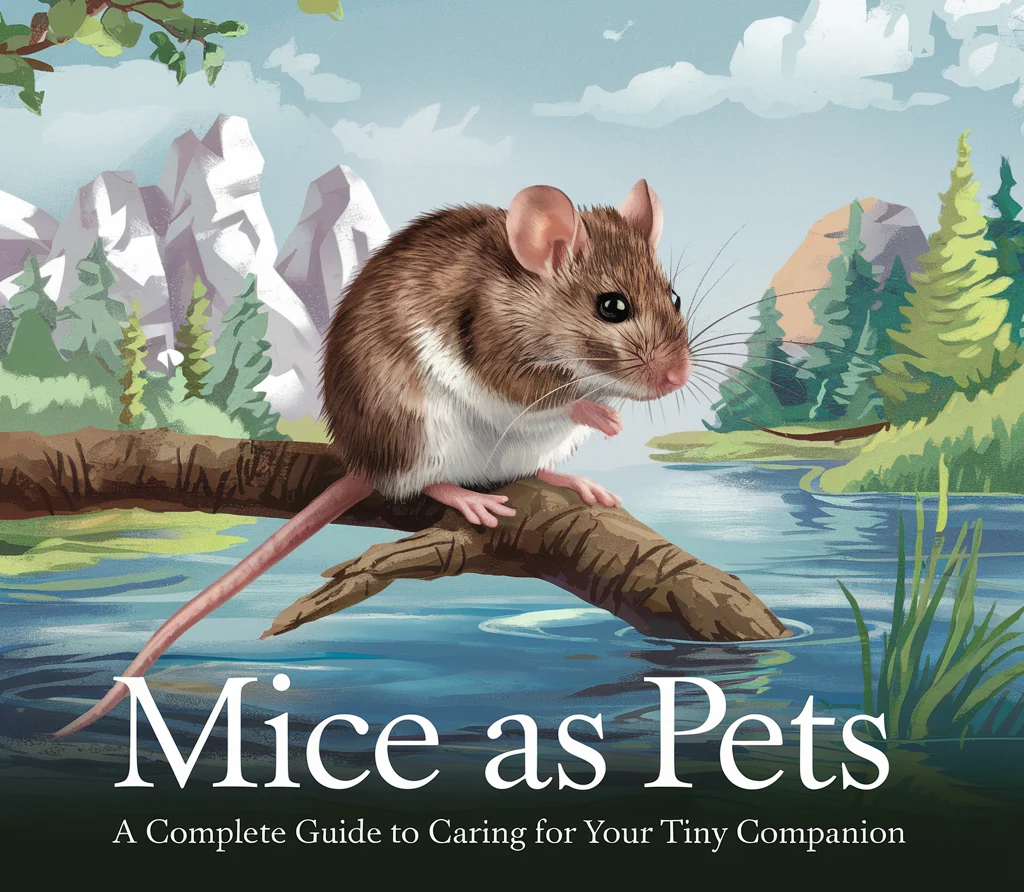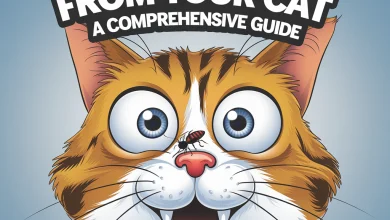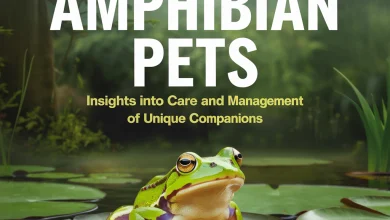Mice as Pets: A Complete Guide to Caring for Your Tiny Companion

Pet mice are small, intelligent, and surprisingly affectionate creatures that make wonderful companions for animal lovers of all ages. Although they may be tiny, they have big personalities and are known for their curious and playful nature. If you’re considering adopting a pet mouse, here’s a comprehensive guide to their care and what makes them great pets.
1. Why Mice Make Great Pets
Mice are an excellent choice for people who live in smaller spaces or those looking for a low-maintenance pet. Here are some reasons why mice make fantastic pets:
- Small and Manageable: Mice don’t take up much space, making them perfect for apartments or smaller homes. Their enclosures are compact and easy to maintain.
- Curious and Intelligent: Mice are inquisitive and love to explore their surroundings. They can also be trained to navigate mazes, recognize their owners, and even perform simple tricks with patience and practice.
- Social Creatures: Mice enjoy the company of their own kind, and it’s recommended to keep them in pairs or small groups. Female mice, in particular, thrive in social settings, while male mice tend to prefer being alone unless introduced very carefully.
- Entertaining and Active: Mice are active creatures, often busy running on wheels, exploring tunnels, or playing with toys. Watching them explore their environment can be a source of endless amusement.
2. Setting Up a Mouse Habitat
A mouse’s living environment is essential for their well-being and happiness. Here’s how to set up the perfect habitat for your pet mouse:
- Cage Size: While mice are small, they still need ample space to move around. A minimum cage size of 24×12 inches is recommended for a pair of mice. Opt for a wire cage with a solid floor or a glass tank with a secure mesh lid.
- Bedding: Use soft, absorbent bedding like paper-based bedding or aspen shavings. Avoid cedar or pine, as these can be harmful to your mouse’s respiratory system.
- Toys and Enrichment: Mice are active and curious, so they need plenty of mental stimulation. Include toys like tunnels, ladders, exercise wheels, and chew toys to keep them entertained and prevent boredom.
- Hideouts: Provide hiding spots like small houses or tunnels where your mouse can retreat to rest or feel safe. Mice are naturally prey animals, so they appreciate cozy hiding spaces.
- Chewing Materials: Mice have continuously growing teeth, so providing them with safe wooden chew toys or blocks helps keep their teeth trimmed.
3. Feeding Your Pet Mouse
A balanced diet is crucial for keeping your mouse healthy and active. Here’s what to feed your pet:
- Commercial Mouse Food: The best option is a high-quality mouse pellet or seed mix formulated for their nutritional needs. This ensures they get the right balance of protein, fiber, and vitamins.
- Fresh Fruits and Vegetables: Offer small amounts of fresh fruits and vegetables as treats. Good options include carrots, apples, cucumbers, and leafy greens. Be sure to avoid citrus fruits and anything too sugary.
- Protein Treats: Occasionally, you can offer a small piece of cooked egg, mealworms, or lean meat as a source of extra protein. Mice love these high-protein treats, but they should only be given in moderation.
- Water: Always ensure that your mouse has access to fresh, clean water. A sipper bottle is the most effective way to keep their water supply clean and prevent spills.
4. Handling and Socializing Your Mouse
Mice are shy at first but can become affectionate and enjoy being handled with proper socialization:
- Patience Is Key: When you first bring your mouse home, give them time to adjust to their new surroundings before handling them. Speak to them softly and offer treats to build trust.
- Gentle Handling: When picking up your mouse, use both hands and scoop them up gently. Be sure to support their body, and avoid grabbing them by the tail as this can hurt them.
- Regular Interaction: Spend time with your mouse every day to strengthen your bond. Regular handling will help them become more comfortable with you, making them friendlier over time.
5. Common Health Issues in Mice
Mice are generally hardy creatures, but they can still be prone to some health issues. Here’s what to watch out for:
- Respiratory Infections: Mice can develop respiratory infections, especially if their cage is not kept clean or if they are exposed to drafts. Symptoms include sneezing, wheezing, and nasal discharge. If you notice these signs, consult a vet.
- Overgrown Teeth: Like all rodents, a mouse’s teeth continuously grow. Without proper chew toys, their teeth can overgrow, causing pain and difficulty eating. Provide wooden chew toys to prevent this.
- Tumors: Mice, particularly older ones, can be prone to developing tumors. If you notice any lumps or abnormal growths, take your mouse to the vet for an evaluation.
- Parasites: Mice can sometimes suffer from external parasites like mites or lice. If your mouse is scratching excessively or has bald patches, a vet visit may be necessary to treat the infestation.
6. Fun Facts About Mice
- Incredible Sense of Smell: Mice have an extraordinary sense of smell and use scent to communicate with each other. This is why they mark their territory with small amounts of urine.
- Nocturnal Nature: Mice are mostly active during the night and twilight hours. If you hear them scurrying around at night, it’s perfectly normal behavior!
- Memory Masters: Mice have excellent spatial memory and can remember the layout of mazes and their cages after just one experience.
- Communal Grooming: Mice often groom each other as a social behavior. It’s their way of bonding and maintaining group harmony.
Conclusion
Pet mice are delightful little creatures that offer endless entertainment and companionship. Their small size, intelligence, and relatively simple care requirements make them a great choice for those looking for a low-maintenance pet. With the right setup, a healthy diet, and plenty of enrichment, your pet mouse can live a long, happy life. Whether you’re looking for a playful companion or a tiny pet to observe, mice are a rewarding addition to any home.



